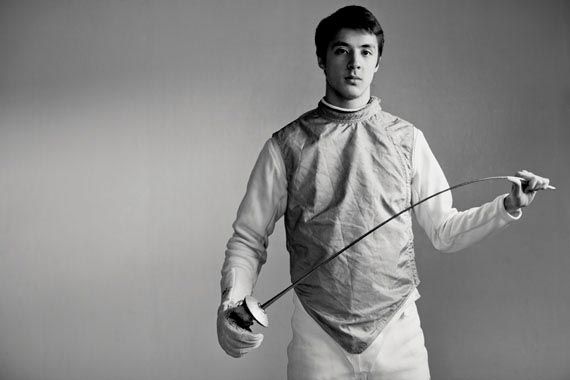Quick jabs, explosive flicks, and tricky footwork: Fencing is often described as a physical game of chess. The age-old sport, which was once a way of resolving chivalric disputes among the European aristocratic class in the 18th century, has evolved into a most sophisticated and well-to-do athletic event—right up there with dressage and polo—and Alexander Massialas might just be considered its local ringleader.
Massialas grew up in a home filled with his dad Greg’s fencing champion rings, medals, and trophies, and he’s right on track to carry on the family legacy. “My father is a three-time Olympian. Watching him fence when I was a kid was the most exciting inspiration for me,” he says. Now, as head coach of the U.S. Olympic men’s foil (a mid-weight sword) team, Massialas’ dad prepares his son for what’s ahead with rigorous physical training and tactic development.
“My dad does a very good job of separating student from son,” he says. “When I’m on the strip, I’m his pupil, and he makes no exceptions.” The 18-year-old is currently ranked first in the U.S. and eleventh worldwide in the men’s individual fencing classification. In 2010, he was the youngest to win the Division I national championship for men’s foil—Massialas’ weapon of choice. With such pedigree, it was really a matter of formality when he was officially signed to the U.S. Olympic team a few months ago.
In July, the soon-to-be Stanford freshman (joining Steve Jobs’ son on the fencing team there) will be one of four competing in the individual and team fencing events in London. Though he’s excited about two medal opportunities and the privilege of representing his country, he says he’s not overly anxious: “You’re constantly trying not to fall into your opponents’ traps, while carefully setting your own.”
This article was published in 7x7's July/August issue. Click here to subscribe.
Related Articles
